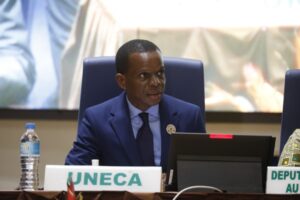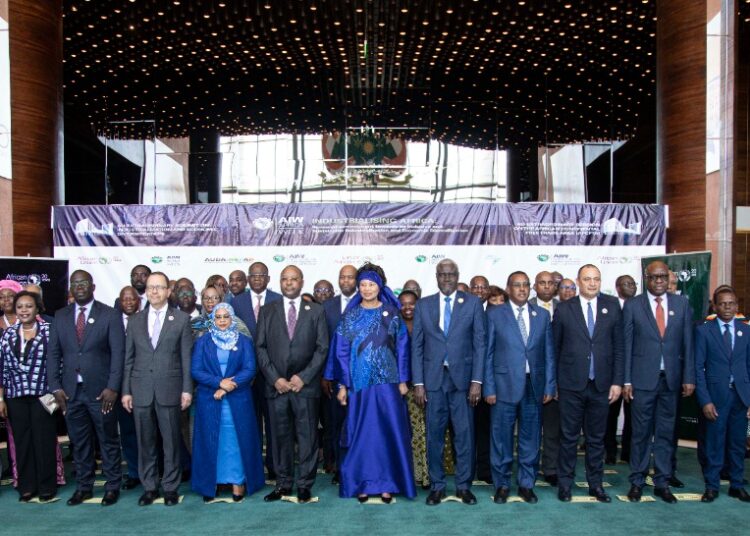Niamey, Niger – Intra-Africa trade is significantly more conducive to fast tracking the continent’s industrialisation than Africa’s trade with the rest of the world.”
This statement by acting Executive Secretary of the Economic Commission for Africa Antonio Pedro came during the 17th AfCFTA extraordinary summit on the importance of developing industry and making economies more diverse for the sake of African development of Africa.
“Africa’s level of economic diversification is low, compared to other regions,” Pedro said, underscoring the need to align industrial and trade policies as the way forward.
“African export diversification is roughly half that of the Americas, Asia and Europe since the continent’s exports rely on a limited range of primary products from the extractive sector,” Pedro added.
“This has resulted in low levels of export diversification and has exposed African countries to the vagaries of commodity price fluctuations, often triggering macro-economic instability which we are ill-equipped to respond to.
“Between 2016 and 2021, oil accounted for an average 37 per cent of African’s exports, whereas intra-African trade is more balanced.

“In the same period, intra-African trade in mineral fuels averaged only 20 per cent, manufactured goods, 44 per cent and foodstuffs 20 per cent.
“Clearly, intra-Africa trade is significantly more conducive to fast tracking the continent’s industrialisation than Africa’s trade with the rest of the world.”
“An Africa that increasingly trades with itself in a diverse range of products is a credible option to build a resilient Africa that can withstand external shocks.”
Pedro went on to say that the continent has suffered more than other regions from the COVID-19 pandemic and from the impact of the conflict in Ukraine, in large part due to its excessive dependency on imports.
“On both occasions though, we have managed to find innovative solutions to reducing the negative impacts of the crises,” Pedro said.
“We have always known that Africa’s sustainable economic transformation requires an accelerated and sustainable industrialisation,” he added.
Demeke Mekonnen, who is Ethiopia’s Deputy Prime Minister and Foreign Minister called on African Union (AU) members should redouble their efforts to switch to industry and boost intra-African trade.
“Industrialisation determines whether Africa can transform its natural endowments into tradable products, or depend on imports,” Mekonnen said.
“Ethiopia enacted an economic reform programme with the sole purpose of creating an economic environment conducive for the private sector to thrive by removing red tape and reverse number of industrial policies in recent years with impressive results,” Mekonnen said.
“Ethiopia threw its weight behind the AU initiative to industrialise the continent,” Mekonnen added.
The summit agreed that industrialisation is not an event but a process and Africa has all the assets for job creation and industrialisation.
On the summit sidelines, AU Commissioner for Trade and Industry Albert Muchanga said Zambia needs financial and technical support from the AU in order to meet the obligation to industrialise by 2063.
This support is needed for setting up enterprises and industries, which could add value to raw materials, Muchanga said.
Speaking during a panel discussion on the African Trade Observatory, Muchanga has said the provision of adequate information on trade and industry is vital to private sector growth.
Financial institutions had also pledged $2 million towards building up enterprises in AU member states, Muchanga added.







Discussion about this post